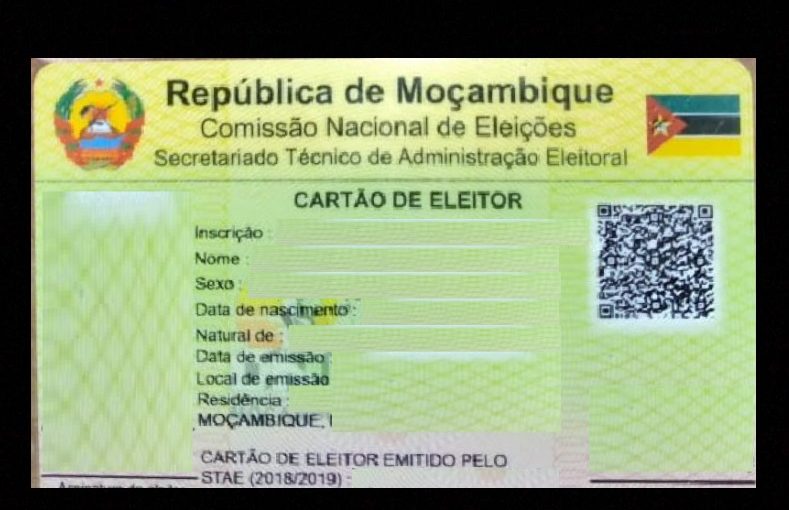Mozambique: Better days not far off for Cabo Delgado province - Governor
Mozambique: Renamo asks for forensic audit on QR code inserted in voter cards

Image: Carta
The introduction of a quick response code (QR) code on the biometric voter card is one of the novelties of the ongoing voter registration in the country. The QR code is similar to the barcode, with the difference that it supports much more information, in quantity and variety.
This Monday, Renamo, the largest opposition party in Mozambique, demanded a forensic audit of the new feature in order to determine its implications for the security of voter data.
At issue is the fact that the QR code “is extremely evasive”, Renamo spokesperson Venâncio Mondlane said, pointing out that it allows any individual to read the data contained therein.
According to Mondlane, electoral bodies should explain to Mozambicans the reasons that led them to introduce the QR code on the voter card, taking into account that it appear on none of the country’s other identification documents, such as identity cards, driving licenses and passports.
“This code is not placed on identification documents, as a matter of national security. We are talking about an extremely evasive code, which allows anyone to read it and its data,” explained Mondlane, who already blames the QR code for the alleged duplication of records denounced by opposition politicians.
Speaking in Maputo during an evaluation of 30 days of voter registration organised by the Centre for Public Integrity (CIP), Mondlane said that a forensic audit would clarify the risks associated with the adoption of the QR code, as well as the damage already caused to voters by its use.
In response to his concerns, the Technical Secretariat for Electoral Administration (STAE) said that the QR code was introduced as a document security mechanism and for voter data validation on polling day.
According to Bernardo Bila, Head of the Department of Voter Registration at the STAE, the QR code aims at preventing the falsification of voter cards and confirming the identity of the voter, through the electronic validation of their data.
Bila assured Mozambicans that the data contained in the QR code would only be used by electoral bodies, so there could be no reason for concern. “Data security is guaranteed. They will not be used by elements outside the electoral process, and the data will only be read by the electoral bodies,” he underlined.
As with Mozambique’s identity cards and driving licences, the voter card is being printed on the PVC card used almost all over the world for identification documents, due to its low cost and desirable physical and mechanical characteristics.












Leave a Reply
Be the First to Comment!
You must be logged in to post a comment.
You must be logged in to post a comment.